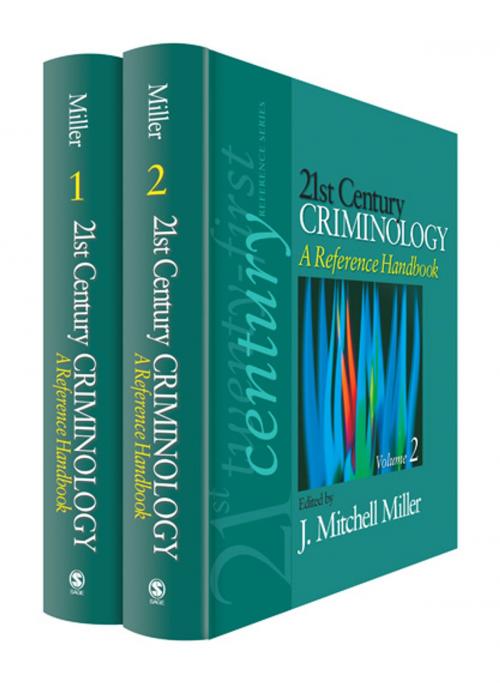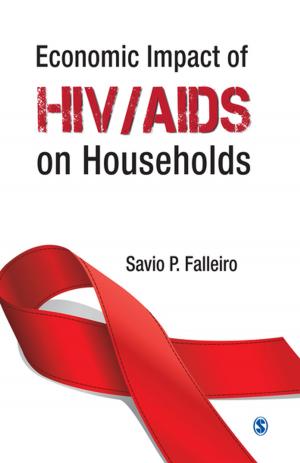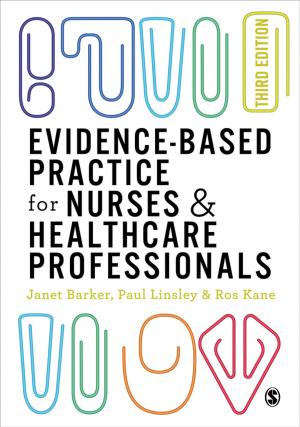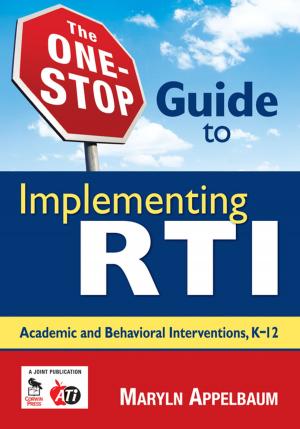21st Century Criminology: A Reference Handbook
Nonfiction, Social & Cultural Studies, Social Science, Crimes & Criminals, Criminology| Author: | ISBN: | 9781506320588 | |
| Publisher: | SAGE Publications | Publication: | August 6, 2009 |
| Imprint: | SAGE Publications, Inc | Language: | English |
| Author: | |
| ISBN: | 9781506320588 |
| Publisher: | SAGE Publications |
| Publication: | August 6, 2009 |
| Imprint: | SAGE Publications, Inc |
| Language: | English |
Criminology has experienced tremendous growth over the last few decades, evident, in part, by the widespread popularity and increased enrollment in criminology and criminal justice departments at the undergraduate and graduate levels across the U.S. and internationally. Evolutionary paradigmatic shift has accompanied this surge in definitional, disciplinary and pragmatic terms. Though long identified as a leading sociological specialty area, criminology has emerged as a stand-alone discipline in its own right, one that continues to grow and is clearly here to stay. Criminology, today, remains inherently theoretical but is also far more applied in focus and thus more connected to the academic and practitioner concerns of criminal justice and related professional service fields. Contemporary criminology is also increasingly interdisciplinary and thus features a broad variety of ideological orientations to and perspectives on the causes, effects and responses to crime. 21st Century Criminology: A Reference Handbook provides straightforward and definitive overviews of 100 key topics comprising traditional criminology and its modern outgrowths. The individual chapters have been designed to serve as a "first-look" reference source for most criminological inquires. Both connected to the sociological origins of criminology (i.e., theory and research methods) and the justice systems' response to crime and related social problems, as well as coverage of major crime types, this two-volume set offers a comprehensive overview of the current state of criminology. From student term papers and masters theses to researchers commencing literature reviews, 21st Century Criminology is a ready source from which to quickly access authoritative knowledge on a range of key issues and topics central to contemporary criminology.
- This two-volume set in the SAGE 21st Century Reference Series is intended to provide undergraduate majors with an authoritative reference source that will serve their research needs with more detailed information than encyclopedia entries but not so much jargon, detail, or density as a journal article or research handbook chapter.
- 100 entries or "mini-chapters" highlight the most important topics, issues, questions, and debates any student obtaining a degree in this field ought to have mastered for effectiveness in the 21st century.
- Curricular-driven, chapters provide students with initial footholds on topics of interest in researching term papers, in preparing for GREs, in consulting to determine directions to take in pursuing a senior thesis, graduate degree, career, etc.
- Comprehensive in coverage, major sections include The Discipline of Criminology, Correlates of Crime, Theories of Crime & Justice, Measurement & Research, Types of Crime, and Crime & the Justice System.
- The contributor group is comprised of well-known figures and emerging young scholars who provide authoritative overviews coupled with insightful discussion that will quickly familiarize researchers, students, and general readers alike with fundamental and detailed information for each topic.
- Uniform chapter structure makes it easy for students to locate key information, with most chapters following a format of Introduction, Theory, Methods, Applications, Comparison, Future Directions, Summary, Bibliography & Suggestions for Further Reading, and Cross References.
- Availability in print and electronic formats provides students with convenient, easy access wherever they may be.
Criminology has experienced tremendous growth over the last few decades, evident, in part, by the widespread popularity and increased enrollment in criminology and criminal justice departments at the undergraduate and graduate levels across the U.S. and internationally. Evolutionary paradigmatic shift has accompanied this surge in definitional, disciplinary and pragmatic terms. Though long identified as a leading sociological specialty area, criminology has emerged as a stand-alone discipline in its own right, one that continues to grow and is clearly here to stay. Criminology, today, remains inherently theoretical but is also far more applied in focus and thus more connected to the academic and practitioner concerns of criminal justice and related professional service fields. Contemporary criminology is also increasingly interdisciplinary and thus features a broad variety of ideological orientations to and perspectives on the causes, effects and responses to crime. 21st Century Criminology: A Reference Handbook provides straightforward and definitive overviews of 100 key topics comprising traditional criminology and its modern outgrowths. The individual chapters have been designed to serve as a "first-look" reference source for most criminological inquires. Both connected to the sociological origins of criminology (i.e., theory and research methods) and the justice systems' response to crime and related social problems, as well as coverage of major crime types, this two-volume set offers a comprehensive overview of the current state of criminology. From student term papers and masters theses to researchers commencing literature reviews, 21st Century Criminology is a ready source from which to quickly access authoritative knowledge on a range of key issues and topics central to contemporary criminology.
- This two-volume set in the SAGE 21st Century Reference Series is intended to provide undergraduate majors with an authoritative reference source that will serve their research needs with more detailed information than encyclopedia entries but not so much jargon, detail, or density as a journal article or research handbook chapter.
- 100 entries or "mini-chapters" highlight the most important topics, issues, questions, and debates any student obtaining a degree in this field ought to have mastered for effectiveness in the 21st century.
- Curricular-driven, chapters provide students with initial footholds on topics of interest in researching term papers, in preparing for GREs, in consulting to determine directions to take in pursuing a senior thesis, graduate degree, career, etc.
- Comprehensive in coverage, major sections include The Discipline of Criminology, Correlates of Crime, Theories of Crime & Justice, Measurement & Research, Types of Crime, and Crime & the Justice System.
- The contributor group is comprised of well-known figures and emerging young scholars who provide authoritative overviews coupled with insightful discussion that will quickly familiarize researchers, students, and general readers alike with fundamental and detailed information for each topic.
- Uniform chapter structure makes it easy for students to locate key information, with most chapters following a format of Introduction, Theory, Methods, Applications, Comparison, Future Directions, Summary, Bibliography & Suggestions for Further Reading, and Cross References.
- Availability in print and electronic formats provides students with convenient, easy access wherever they may be.















